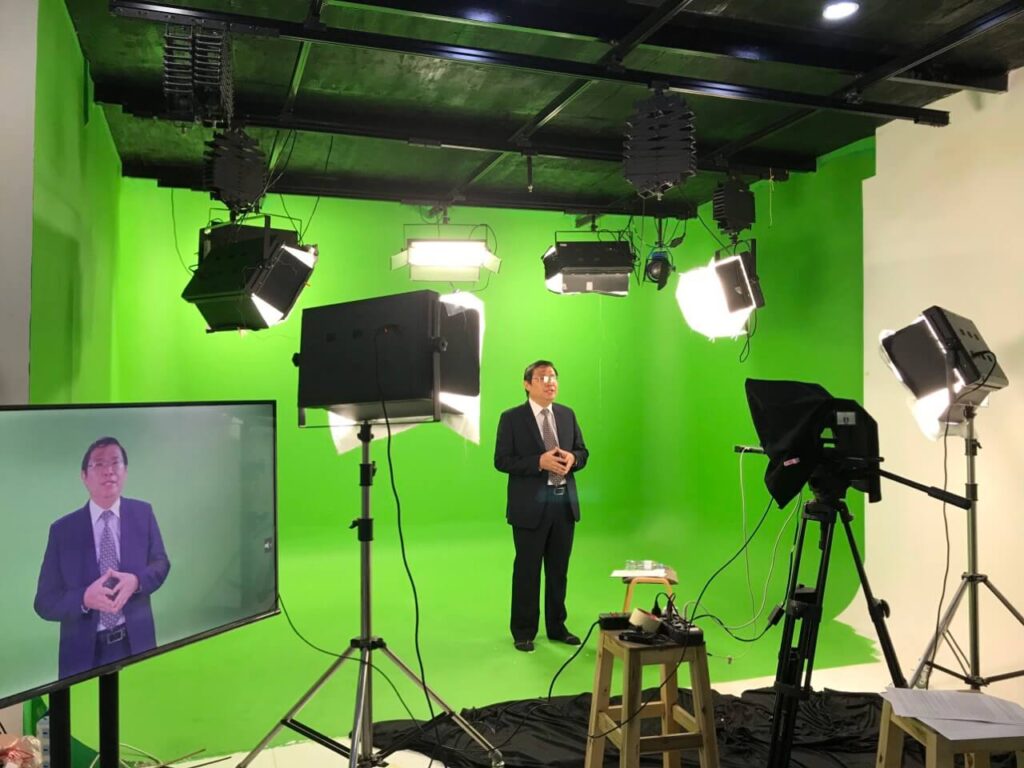Distance Converter
You need to have a video session with your camera soon. This makes you feel anxious about how to look the best on camera. The article 10 Simple Camera Facing Skills will help you get more useful tips on how to face confidently when standing in front of the camera.
1. Prepare your content before appearing with the camera
It is critical to prepare your content before appearing on camera for a successful video or live stream. Whether you’re making a video for work, starting a YouTube channel, or going live on social media, planning ahead of time can help you feel more confident and ensure the quality of your content.
Understand your target audience: Knowing who you’re talking to allows you to tailor your content to their interests and needs.
Create an outline for your content: Make a list of the main points you want to cover and arrange them in a logical order.
Rehearse: Practice your content several times to become more comfortable and confident in front of the camera.

Dress appropriately: Wear clothing that is appropriate for the occasion and gives you confidence.
Configure your camera and lighting: Check that your camera is properly positioned and that your lighting is adequate for a clear shot.
Examine your equipment: Make sure your microphone and camera are in working order.
You can create high-quality videos that engage and inform your audience by taking the time to prepare your content and ensure everything is in place.
2. Always be confident and flexible in using body language
The importance of body language when appearing on camera cannot be overstated. It can help you convey your emotions, connect with your audience, and increase the impact of your message. When using body language on camera, confidence is essential. Maintaining good posture, making eye contact, and using natural and confident gestures can help you appear more authoritative and engaging.
When using body language on camera, flexibility is also important. Different situations may necessitate different types of body language, and being able to adapt to different scenarios can help you keep your audience’s attention and effectively convey your message. This is the next element in the 10 Simple Camera Facing Skills.
3. Always smiling is essential when appearing in front of the camera
While smiling can be beneficial when appearing on camera, it is not always necessary. Depending on the content and tone of your message, a more serious or neutral expression may be more appropriate in some cases.
A smile, for example, may not be appropriate when delivering a somber message and may detract from the impact of your message. A smile, on the other hand, can help you convey your enthusiasm and build a connection with your audience if you are delivering a lighthearted or upbeat message.

To project a consistent and professional image on the camera, match your facial expression to the tone and content of your message. That being said, smiling can be a useful tool in many situations because it makes you appear more approachable and likable. A genuine and warm smile can help you connect with your audience and make them feel more at ease.
While always smiling isn’t necessary when appearing on camera, it can be a useful tool when used correctly.
4. Relaxing your body and keeping your back straight
Maintaining good posture and relaxing your body can help you appear more confident and professional on camera. When you’re relaxed, your body language is more natural, and you’re less likely to make nervous gestures or exhibit tense expressions. This can help you appear more relaxed and confident in front of the camera.
Maintaining good posture, such as sitting or standing up straight, shoulders back, and chin level can also help you look better on camera. Good posture can make you appear more alert and engaged, as well as aid in the effective projection of your voice. This is the next element in the 10 Simple Camera Facing Skills.
5. Don’t let fear affect your appearance in front of the camera
When it comes to appearing on camera, many people struggle with fear, but it’s critical not to let it affect your performance. Fear of being on camera can manifest in a variety of ways, including feelings of nervousness, self-consciousness, or anxiety. These feelings, however, can be overcome with preparation, practice, and a positive attitude.
6. Speak slowly and clearly
Speaking slowly and is essential when appearing on camera. It ensures that your audience understands your message and makes you appear more professional and confident. It can be difficult for your audience to follow along and understand your message if you speak too quickly. Furthermore, speaking too quickly can make you appear nervous or unsure, which can diminish the impact of your message.
Speaking slowly and, on the other hand, can help you articulate your words more effectively, project your voice more confidently, and come across as more authoritative and engaging. It also allows your audience to process the information you’re presenting.
It’s critical to strike a balance between speaking quickly and slowly. A good rule of thumb is to speak at a natural pace that allows you to articulate your words clearly. When appearing on camera, speaking slowly and clearly can help ensure that your message is understood by your audience and convey confidence and professionalism.
7. Breaking between sentences for easy correction when mistakes
Taking breaks between sentences can help with easy correction when mistakes occur. Mistakes are unavoidable when speaking, and they are more likely to occur when you are under pressure or in front of a camera. Taking breaks between sentences can help you catch errors early on and correct them before they become more serious.

Taking breaks can also help you gather your thoughts, pause for emphasis, and allow your audience to process the information you’re presenting. It is critical to take breaks smoothly and naturally. Avoid long pauses or silences, which can be distracting to your audience. Instead, try to move between sentences smoothly and use body language to help convey your message.
By inserting breaks between sentences, you can help ensure that your message is delivered effectively and that any errors are easily corrected. This can make you appear more professional and confident on camera. This is the next element in the 10 Simple Camera Facing Skills.
8. Imagining you’re talking to someone
When you’re on camera, pretending you’re talking to someone can help you feel more relaxed and confident. Speaking in front of a camera can be intimidating, especially if you’re not used to it. However, by pretending to speak to someone, you can feel more connected to your audience and deliver your message more effectively.
Consider a specific person or group of people you’d like to speak with and imagine them right in front of you. This can assist you in engaging with your audience, feeling more relaxed, and delivering your message with greater confidence and naturalness.
You can also pretend to be having a conversation with someone, which can help you appear more relaxed and approachable on camera. By imagining yourself speaking to someone, you can make the experience of being on camera feel more natural and personal, allowing you to deliver a more engaging and effective performance.
9. Looking back at yourself after facing the camera
Looking in the mirror after appearing on camera can help you improve your performance in future recordings. You can gain a better understanding of your body language, expressions, and speaking habits by filming yourself. This can help you identify areas for improvement and make changes to make future recordings more effective.

For example, you might notice that you use filler words like “um” or “ah” when speaking on camera. You can work on reducing or eliminating these words from your speech if you are aware of the habit. This is the next element in the 10 Simple Camera Facing Skills.
10. Drinking enough water and staying healthy and in the best mood
When appearing on camera, drinking plenty of water and maintaining good health and a positive attitude is critical. When you’re dehydrated, it can be more difficult to speak clearly and effectively deliver your message. Drinking plenty of water can help keep your throat and mouth moist, making it easier to speak and lowering your chances of getting a dry throat or mouth.
Good health and a positive attitude can also help you perform well on camera. It can be difficult to focus, be confident, and deliver your message effectively if you are tired, sick, or in a bad mood.
Hopefully, the article 10 Simple Camera Facing Skills will provide you with useful information.